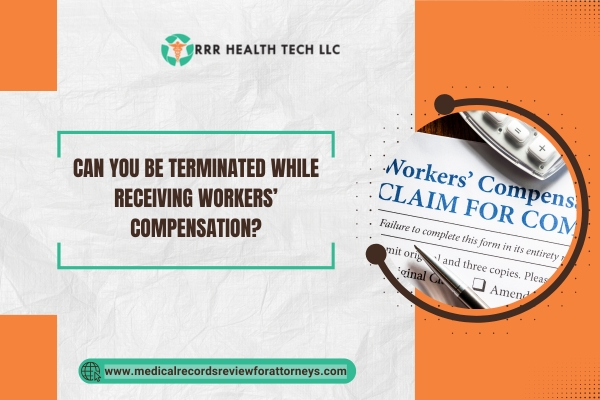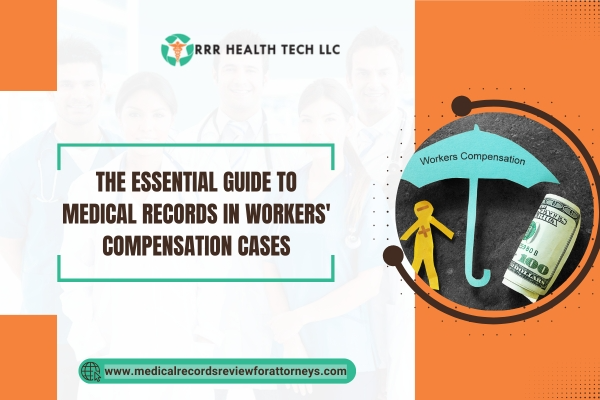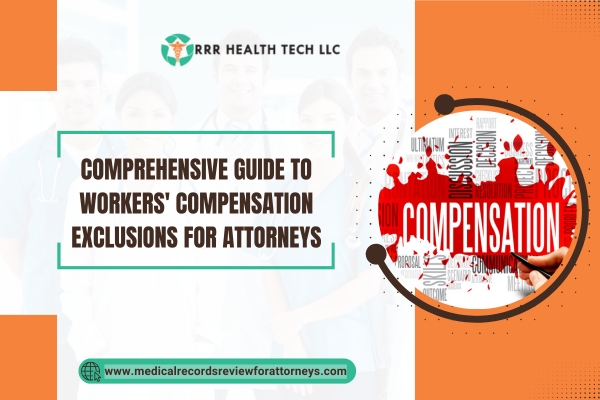
“Workers’ compensation” insurance is what every employed person looks forward to, this insurance aids in catering to medical expenses, lost earnings, and rehabilitation services during the time of recovery. In quote “I can be fired while on workers’ compensation,” there are a lot of worries that come as a burden along with an injury. The question for a lot of people is if they can be terminated while receiving workers’ compensation benefits. Even though it is unlawful to dismiss any single individual because of filing a worker’s compensation claim, some situations legally allow one to terminate an employee. If you are presented with a termination while on workers’ compensation, then it is important for you to know your legal rights.
1. Understanding Workers’ Compensation
What is Workers’ Compensation?
Employees of a particular company who get injured while on duty are provided wage replacements and medical services through a particular type of insurance. This is how compensating an injured person without laying any blame is simplified for easy understanding.
Purpose and Benefits
To commence with, the main goal of worker’s insurance is to make certain that an employee gets reasonable attention and care, along with financial assistance for injuries incurred while on the job. Almost all workers’ insurance ensures that:
• Medical Expenses: These expenses pay for costs associated with medications, hospital stays, and physical therapy.
• Wage Replacement: These expenses pay lost wages while an employee is recovering from an injury.
• Vocational Rehabilitation: Help in going back to work or seeking new employment if the individual cannot return to the same job.
2. Can You Be Terminated While on Workers’ Compensation?
Legal Protections against Termination
Employees are guarded against being fired due to a workers’ compensation claim both federally and on a state level. The law does not allow an employer to retaliate against an employee for exercising rights they have under the workers’ compensation law. However, it is worth noting that being on workers’ compensation does not, in itself, guarantee that one will remain employed by the company that had registered the injury.
Circumstances Allowing Termination
There are specific situations where an employer may legally terminate an employee while they are on workers’ compensation:
• Company Layoff or Reorganization: Employees still active within their company and on Workers’ Compensation can be let go if there is a significant restructuring as long as the accident sustained does not contribute to such a decision.
• Neglect: If an employee has shown neglect towards work, and has not performed up to the standards set even before the injury, it is possible to relieve him or her while on leave. The employer must prima facie prove that those reasons were relevant and that injury was not the reason behind such a termination.
• The Ability to Execute Work Responsibilities: An employer has the right to dismiss an employee if the worker is never able to return to work because of a disability brought by a serious injury. Regardless, the employee still has a right to workers compensation benefits and may be able to participate in vocational rehabilitation services.
• Conclusion of Short Term Employment: For short term or seasonal employees, there is no obligation to renew the contract of employment if the contract is terminated during the term of the worker’s compensation benefits.
3. What Constitutes Retaliation?
Definition of Retaliation
Retaliation is explained as action taken by an employer against his or her employee after the employee has exercised authority granted to them, like putting in a claim for workers compensation. It is prohibited, and a violation of the law could result in ramifications for the employer.
Examples of Retaliatory Actions
• Within a short period of dismissal after claim submission: Termination of employment in close proximity to a workers’ compensation claim may be associated with sabotage.
• Negative adjustment: You may find a permanent form of hostile work environment specific to your professional role after filing a claim for workers’ compensation.
• Undue changes of position: In some cases, negative transfer is also regarded as retaliation.
If you suspect that your termination was motivated by your workers’ compensation claim, it is crucial to consult with an attorney.
4. What to Do If You’re Terminated While on Workers’ Compensation
Immediate Steps to Take
If you are terminated while receiving workers’ compensation, it is essential to take the following steps:
- Take a deep breath: Try to collect your thoughts and avoid acting rashly.
- Obtain The Termination Papers: Fetch documents concerning your termination, such as the termination letter and ask for any reasons stated.
- Pull the Claim File: Gather every performance evaluation, disciplinary action taken, and any relevant communication concerning your claim and request for workers’ compensation.
Importance of Documentation
They are very vital and should be maintained. Record every email and communication you receive from your employer concerning your injury, your claim for workers’ compensation, and the termination. This may be important later on should you choose to file a lawsuit.
5. Consulting an Attorney
When to Seek Legal Help
If you believe your termination was unjust or retaliatory, consulting with an attorney experienced in employment law is advisable. They can help you understand your rights and options.
How Medical Record Review Services Can Assist
These kinds of professionals can be helpful in your case by providing holistic documentation regarding your medical history, treatments, and recovery, which attorneys require in order to understand the details of your case. This might aid in proving the validity of your workers’ compensation claim, along with possible retaliate actions.
6. Case Studies
Case Study 1: Termination Due to Company Restructuring
Case Details: An employee was already injured and on workmen’s compensation when he was told that the company was planning restructuring.
Challenges: The employee was worried about being retrenched since he believed that his claim and the associated injury would be the reason for his losing the job.
Solutions: The attorney analyzed the organizational restructuring and determined the issue was financially driven. The employee’s claim and subsequent benefits were awarded without further issue.
Compensation: The employee was able to obtain all his workers’ compensation benefits and used the funds to secure a new position through vocational counselling.
Case Study 2: Termination for Poor Job Performance
Case Details: A subordinate who tended to demonstrate low work output claimed workers compensation after getting injured on the job.
Challenges: The employer claims to have let go of the employee due to their on-going lack of efficiency which raised the chances of retaliatory action being taken against them.
Solutions: The attorney reached out to performance evaluations that illustrated the absence of the employee’s injury that could have been marked as a reason for withdrawing their position. The account holder was briefed on his rights as well as the future courses of action he could take.
Compensation: The employee in question indeed did receive a pay-out but the payment did not mark a return to employment due to increased workload performance issues as discussed earlier.
7. Conclusion
Dealing with the intricacies of claims in relation to using workers’ compensation benefits alongside of facing termination of one’s position seems like an impossible task. The injured party has to know their inner details such as the information that they are entitled to as well as the legal coverage that is intended for their aid. If you happen to be in a situation where yourself or someone you know is put in a situation needing termination while using injury assisted benefits, documentation is paramount and seeking a reputable lawyer is key. Paralegals and other small-law legal businesses need to have their relevant medical records.


